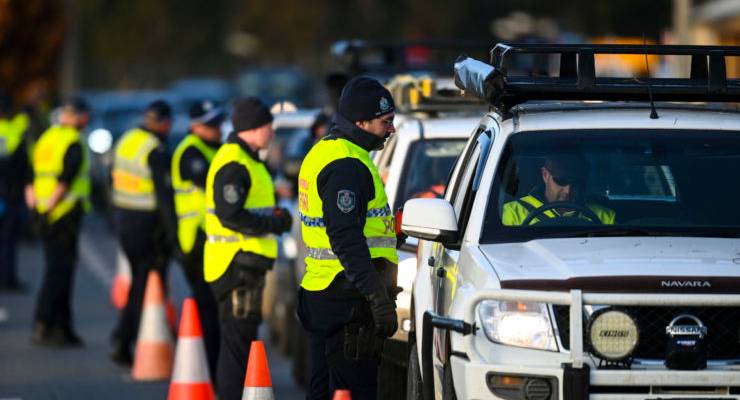
It only took a small fall in the number of daily COVID-19 cases in Victoria to restart a round of business agitation for open borders this week.
Employer organisation AIGroup — which called for the reopening of the Victorian border as the outbreak there was actually accelerating — again urged a reopening.
James Pearson of ACCI wants both international and state borders reopened. The Australian Financial Review continues to give a platform to Graham “Skroo” Turner, the CEO of convicted price fixer Flight Centre — a company with a rotten corporate culture, that tried to impose cancellation fees on customers during the pandemic and which has been dumped by one of its biggest customers for overcharging.
Turner’s demand at all stages has been a reopening of borders so that travel can resume. Airport owners have joined in the calls as well.
Yesterday it was Alan Joyce’s turn to complain about closed borders, which “don’t seem to make any medical sense”, while announcing a $1.96 billion loss for Qantas — an outcome that will enable Qantas to resume its tax avoiding ways for years to come. Joyce also wants more handouts for his airline. For Joyce, government seems always to be a source, not a destination, of funds.
Scott Morrison continues to claim he wants open borders between states. But Morrison himself maintains the tightest border restrictions of all. Unlike Morrison, no state bans its residents from leaving. Nor has he provided any timetable for reopening Australia’s borders. Those facts, curiously, seem to rarely be mentioned in discussions of the border closure issue.
The popularity of border closures at a state and national level continues to irk business and right-wing commentators. The Great Bloviator at The Australian suggested offending premiers “strut the stage as populist strongmen and women” — with no mention of Morrison’s border closure.
The charge of populism, usually deployed to described popular policies disapproved of by elites (remember the Liberals criticising the idea of a banking royal commission as “populism”), has been bandied about regularly over border closures. It’s designed to delegitimise the policymakers — particularly Labor premiers — but it studiously ignores why border closures are so popular. People see no benefit to opening borders for them — only the risk of spreading infection and a return to lockdown, Melbourne-style.
Indeed, from the point of view of most Australians, continued border closures make perfect sense, because few of them will benefit in any way if borders are reopened. The benefits, as they see it, will flow to business — to Qantas, and the owners of airports, and Skroo Turner, and the members of AIGroup and ACCI.
That reluctance, or inability, to see business (and especially big business) as part of the community reflects decades of alienation brought about by business misconduct, scandals and abuse of power at the expense of customers and workers. Whether it’s banking scandals, widespread wage theft, wage stagnation, electricity price gouging, aged care abuses or tax avoidance, business has worked assiduously to piss Australians off. Now they lament the “populism” that prevents Australians from seeing the economic benefits of opening borders even while COVID-19 still circulates.
It’s not like the business community doesn’t understand they’ve alienated Australians. Big business lobby group the BCA set up a whole campaign, in conjunction with far right pay TV channel Sky News, trying to promote business as crucial to Australia — with about the same effect as every other campaign the BCA has ever run.
The business case for reopening borders needs to be all about how many jobs will be created — hard numbers that can be meaningfully checked later — how much wages will rise and who will benefit from access to services and goods currently not provided.
While hilarious in his partisan railing, Paul Kelly is partly correct to refer to “pandemic protectionism” because the case against border closures mimics the case against tariffs: the downsides are clear and specific, but the benefits are nebulous and economy-wide, and need to be made concrete in order to achieve community support.
Big business whingeing to the AFR about hits to profits and “populism” just isn’t going to cut it. It will have to convince Australians that they have something to gain from freedom of movement that’s worth the risk of what’s happening right now in Victoria.








Crikey is committed to hosting lively discussions. Help us keep the conversation useful, interesting and welcoming. We aim to publish comments quickly in the interest of promoting robust conversation, but we’re a small team and we deploy filters to protect against legal risk. Occasionally your comment may be held up while we review, but we’re working as fast as we can to keep the conversation rolling.
The Crikey comment section is members-only content. Please subscribe to leave a comment.
The Crikey comment section is members-only content. Please login to leave a comment.